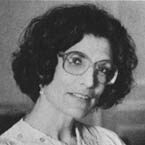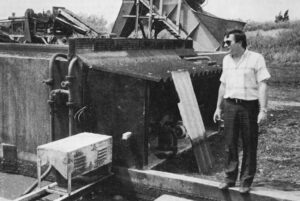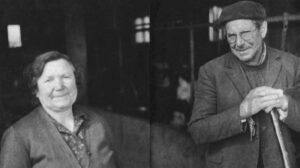Alma Guillermoprieto
- 1985

Fellowship Title:
- Changes in Rural Life Under the Policies of the European Economic Community
Fellowship Year:
- 1985
The End of European Peasantry
The radical transformation of the European countryside was one of the first and most ambitious goals the European Economic Community set for itself at its creation in 1958. Sifting through the economic and political wreckage of the post-war era the architects of the Community, or Common Market, gave agricultural self-sufficiency overwhelming priority in their plans for a united, war-free Europe. Today, almost twenty-five years after the creation of the Community’s Common Agricultural Policy, or CAP, European planners acknowledge that the CAP’s very success has made it obsolete. Stability and even modest prosperity are now the norm in much of rural Europe. Food supplies are plentiful and guaranteed. With the help of a giant array of machinery, farm work has become far less onerous. But no victory comes without a price. Europe has paid it in the disappearance of the Western world’s oldest surviving social class–the paysannerie–and the consequent emptying of its countryside. In France alone, the CAP era has seen a decline in the rural population of more than one million. The countryside, that traditional
A Road For Rhenigidale
The village sits on the westernmost reaches of Europe, perched at the mouth of a loch (or fjord) on one of Scotland’s smaller islands; the Isle of Harris. The island is bleak, brown, chill and windy. In the village itself there are no stores, movie theaters, coffee shops, swimable beaches, famous artists or local crafts, and yet Rhenigidale attracts a small but steady trickle of post-hippie visitors lured by its most outstanding characteristic; the one the villagers themselves are most desperately trying to change. The village has no road. In the waning years of the century of the automobile the only way to reach this tiny village is still by means of what the locals describe as a “sturdy hike.” But after many years of lobbying, petitioning and pleading, Rhenigidlians are about to get their road thanks to an experimental program set up by the European Economic Community, or EEC, aimed at finding new avenues of regional development. For the EEC, the $750,000 road project is a mere speck on the budget, much as the

The Failure of Plenty
It’s hard to find a better potato farmer in Southwest France than Jose Sanchez. He started from scratch ten years ago on about five acres of land, tearing up cypress wind barriers and planting new ones, filling in gulches with cart loads of dirt to create the smooth fields he now works from dawn to midnight six and seven days a week during harvest time. Today Sanchez (who like many farmers in this region that once belonged to Spain, has Spanish ancestors to account for his name) owns about 12 acres and rents an additional eight. He owns all kinds of machinery and employs one farmhand year round. If he unable to meet his $19,000 payment on a government loan this year it will be through no fault in his farming, but because like a good part of the farmers in the ten-member European Economic Community (EEC), he is far too successful for his own good. In this season of plenty, potatoes from Spain, Italy, Germany, and France are flooding the European market. Although it

The Modernization of Pepe Lopez
SANGUINEDO, Spain–Depending on how you look at it, Pepe Lopez came to farming by accident or by inescapable destiny. The accident was that he was caught without work papers and deported from Switzerland ten years ago. Destiny was waiting for him in the beautiful and backward region of Galicia, Spain, on the seven hectares of land his father, grandfather and great-grandfather had farmed before him, and which Lopez says he had wanted so much to escape. Depending on how you look at it, Pepe Lopez, age 30, is a success or a failure. In Galicia, where poverty is as plentiful as potatoes, he is sitting right on the edge of prosperity, farming more land for pasture than his six neighbors own between them, and selling a major dairy company the milk from his 14 cows while his neighbors–like 70 percent of all Galician dairy farmers–each make do with six or fewer cows. But on the production graphs of the European Economic Community (or Common Market, as it is also known), Lopez inhabits the gulches, far
